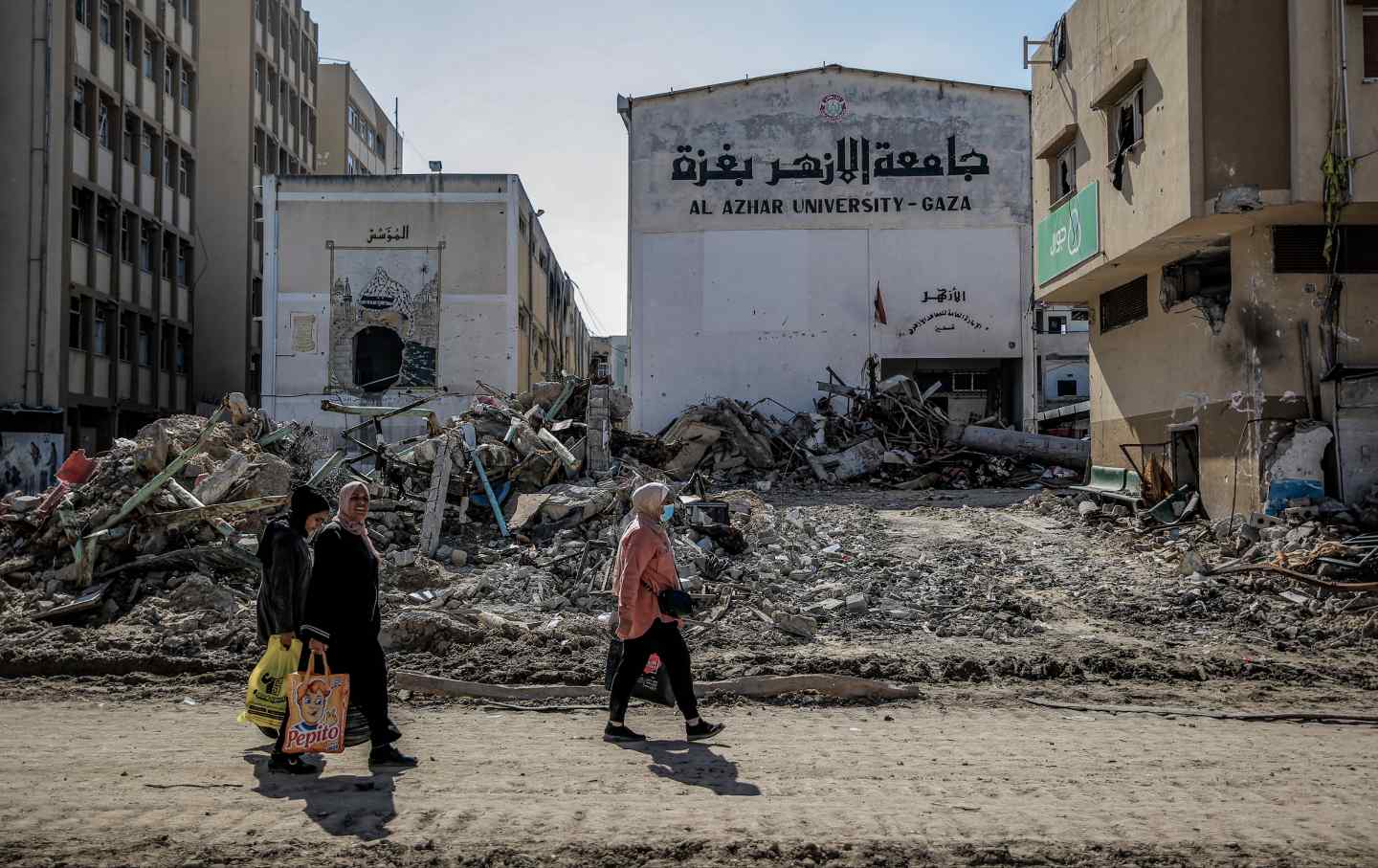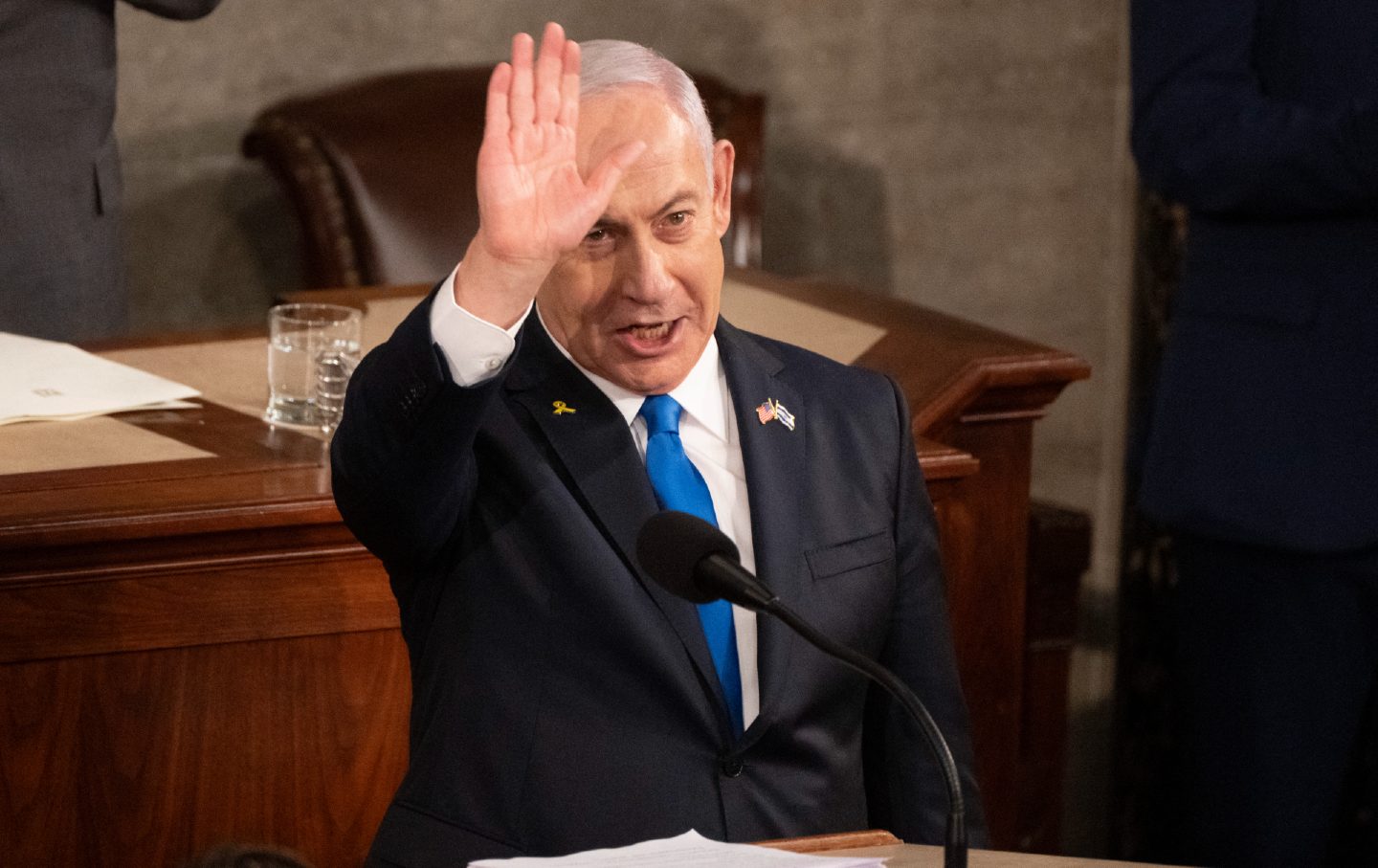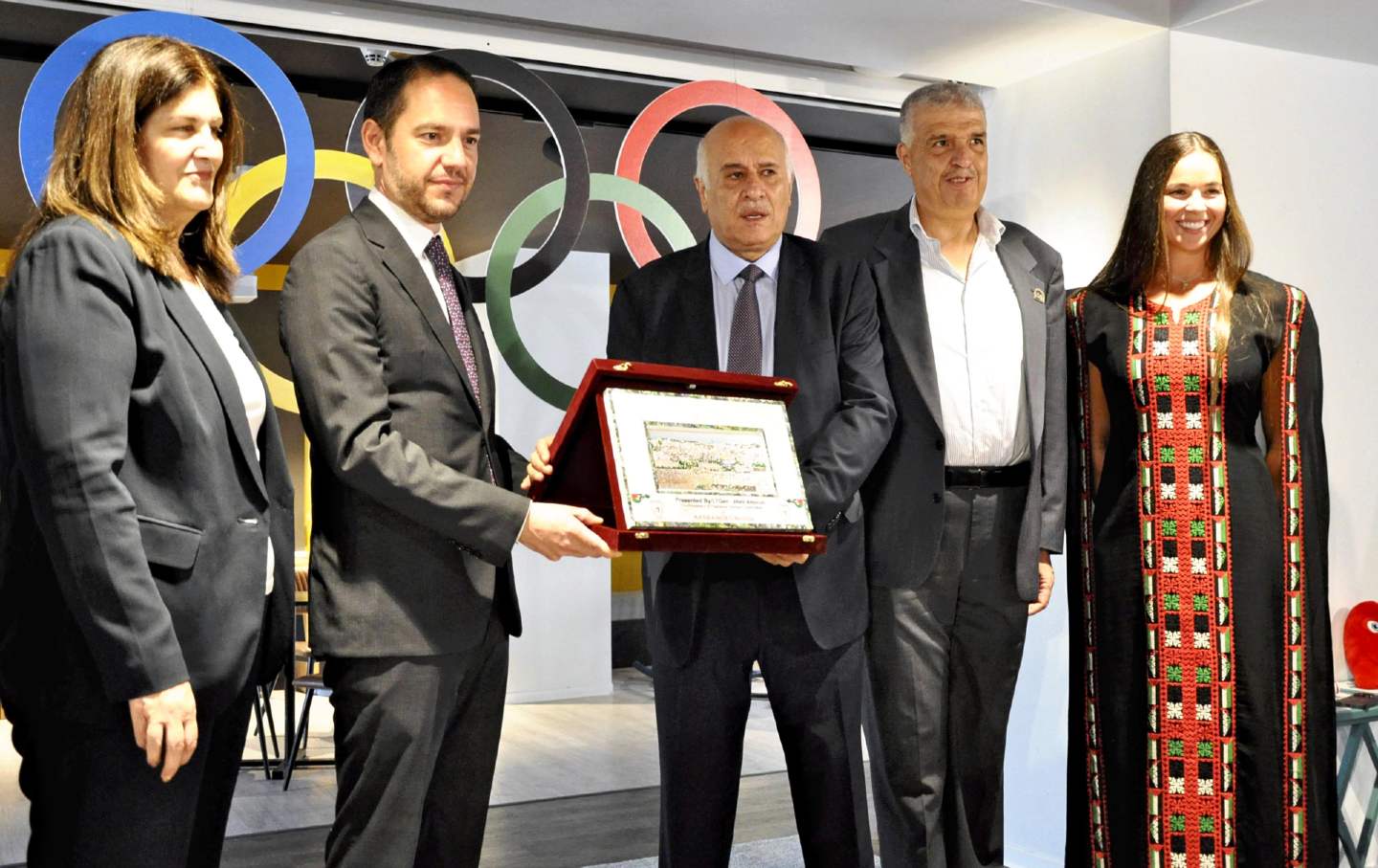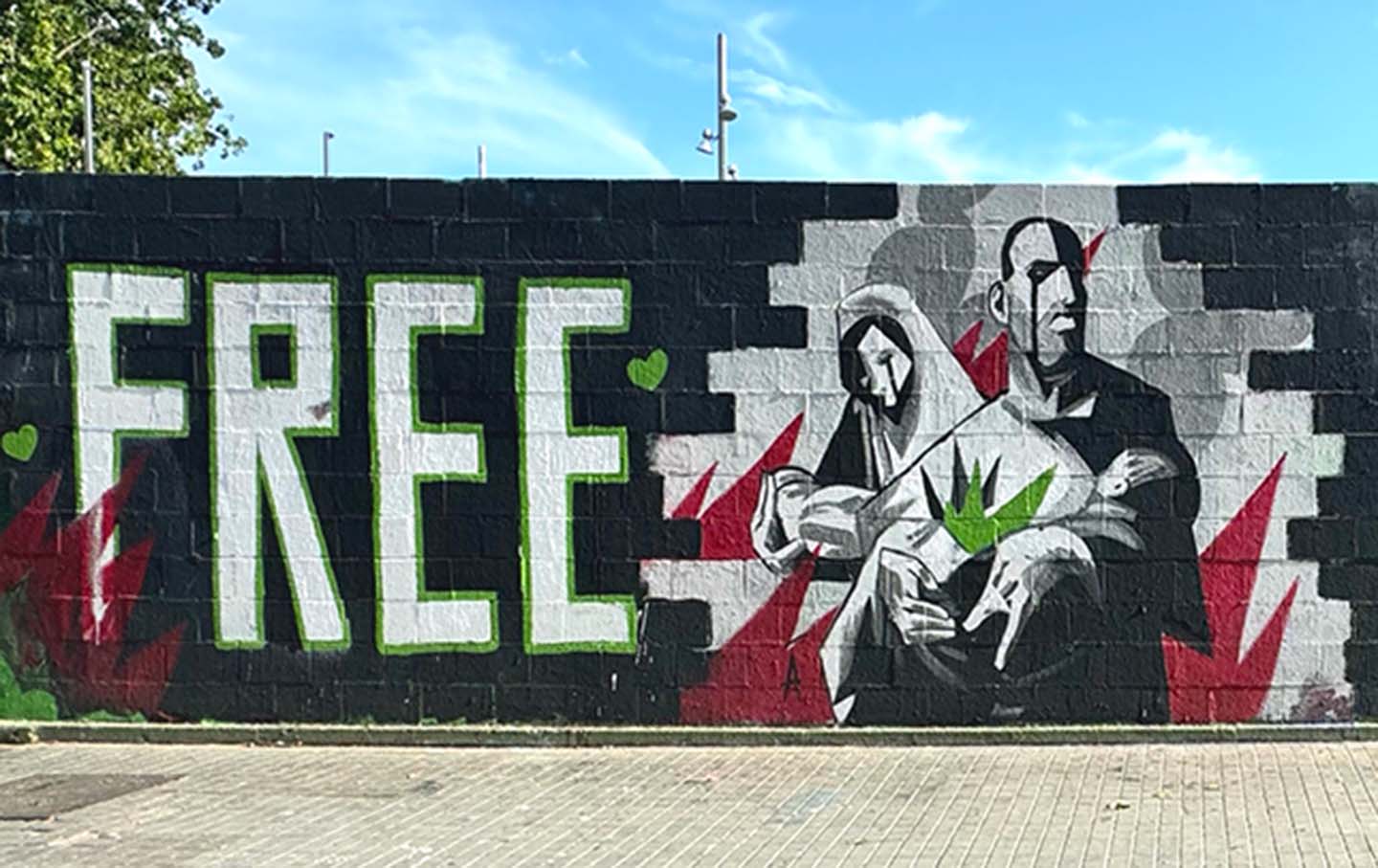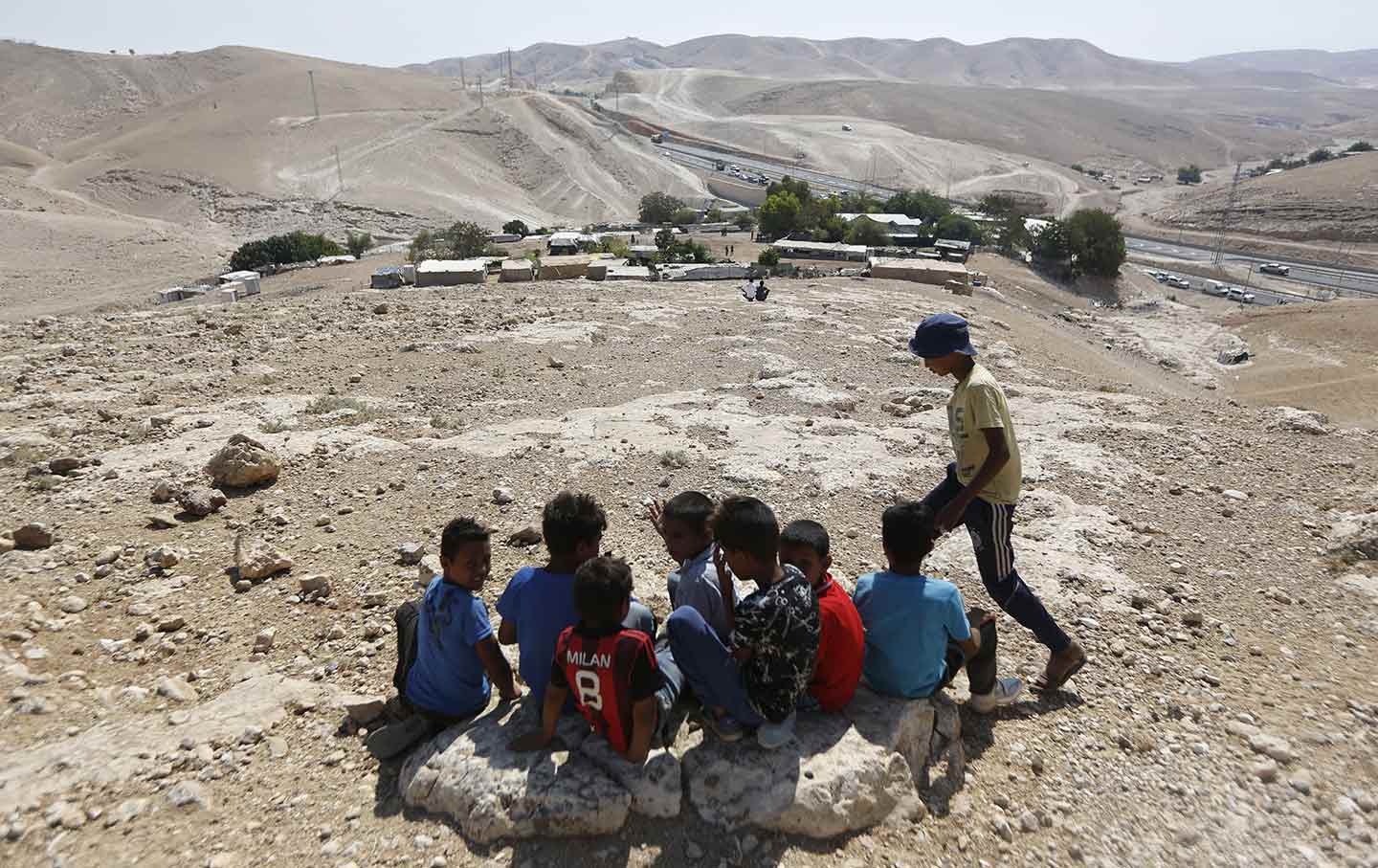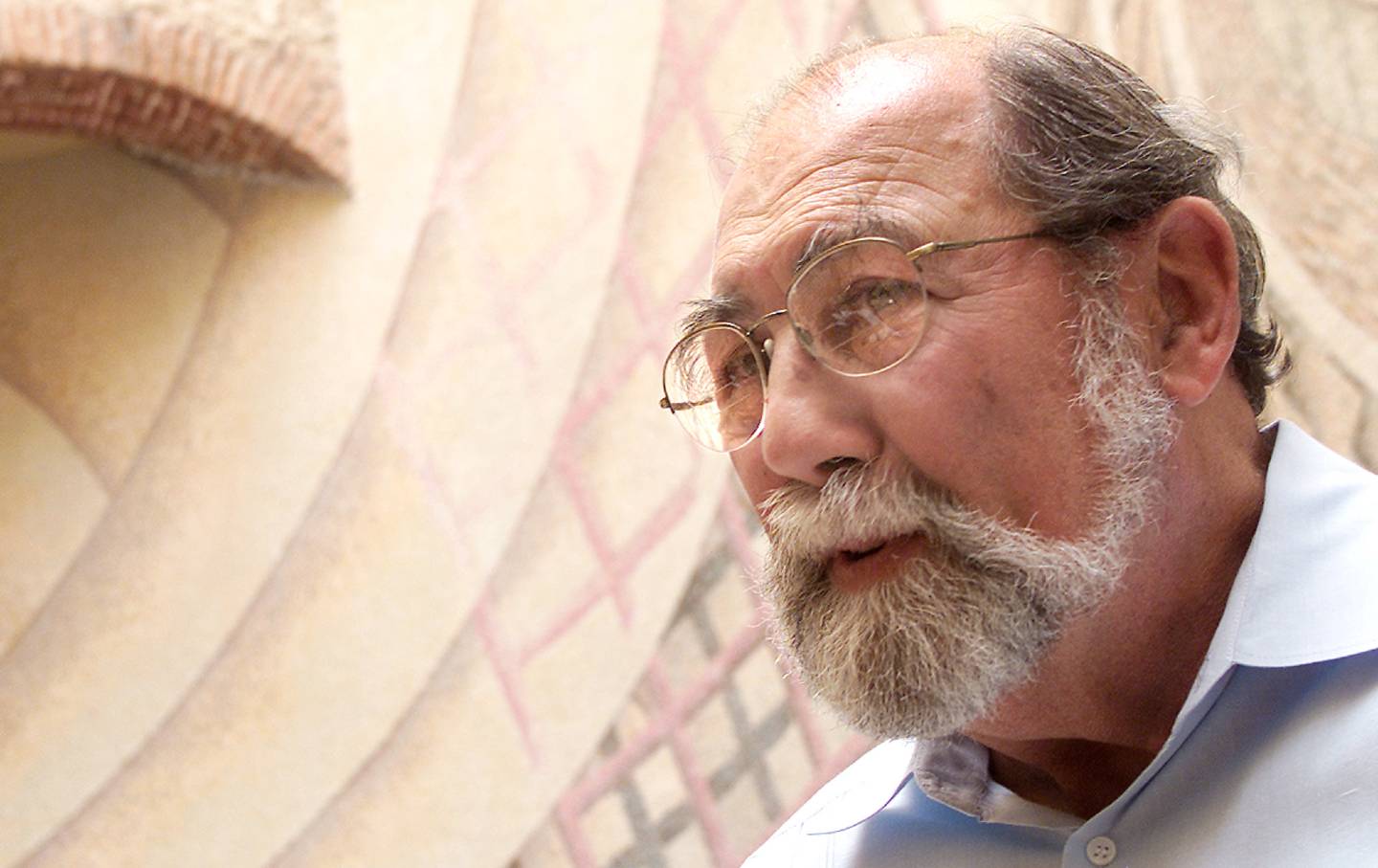Ahmed Abu Artema Tried to Get the World to Care About Gaza’s Pain
The activist and Nation contributor pleaded with the world to stop Israel’s war on Gaza. Then, on October 24, his son was killed.
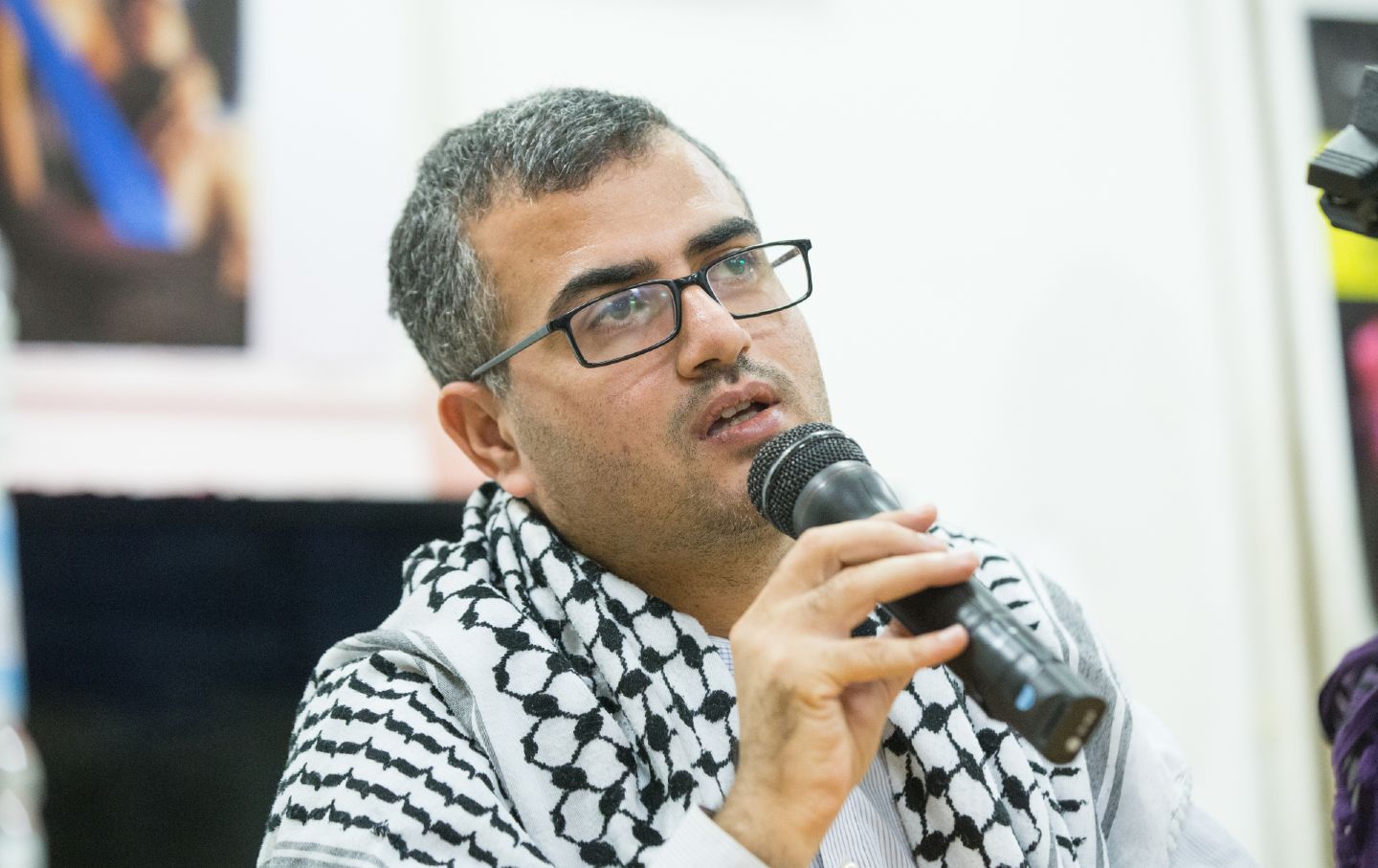
I met Ahmed Abu Artema only once, in March of 2019, but if I close my eyes for just a moment, I can still conjure him sitting in The Nation’s conference room, soft-spoken and bookish in a pair of black rectangular glasses, reluctantly commanding our attention.
Ahmed is a writer and peace activist who was born in the Rafa refugee camp to a family that had been expelled from what is now Israel. He had come to speak with us, a small band of editors and interns, about life under siege in the Gaza Strip and about the mass nonviolent movement he’d helped galvanize to resist it.
Every Friday, for more than a year, he recounted, thousands of people in Gaza would make their way to the border fence with Israel as part of what they called the Great March of Return. They were, as he wrote in a 2018 piece for The Nation, “fighting back peacefully with our bodies and our love for life, appealing to the justice that remains in the world.” For this, Israeli soldiers shot and tear-gassed them, killing more than 200 protesters and wounding tens of thousands.
Before Ahmed left The Nation’s office, we agreed that he should continue to share his words with our readers—and he did. Over the next four years, he wrote articles, at once poetic and urgent, that bore witness to Israel’s strangling grip on Gaza. In 2019, during one of the Israeli military’s periodic bombing campaigns, he wrote of trying to calm his terrified young son Abdul Rahman with hugs and even humor, telling him, “Look, son, these bombs are far away and fall in the sea not near us, so whenever you hear them again, I want you to jump high in the air, laugh, and shout ‘Hey!’”
Not long after, in the spring of 2020, he described the tense quiet of the early days of Covid, as Gaza’s shattered health system prepared for the arrival of the deadly virus. And just last month, when Israel began its bloodiest war on Gaza yet, he did his best to make the “blur of cascading violence” real for readers.
“The stench of death is on the streets,” he wrote, “and the nights are endless, with no electricity and intensifying bombardments.”
On October 24, just 10 days after he published those words, Ahmed’s oldest son Abdullah was killed in one of those intensified bombardments. He was 13 years old and adored by his father for his “innocence, kindness, compassion, mercy, and…self overflowing with goodness.” Abdullah had just returned from a trip to the corner store to buy bread—though he had found no bread, only biscuits—when the bomb fell. The blast killed four other relatives—two of Ahmed’s aunts, one of those aunt’s daughters, and his step-mother—and seriously injured Ahmed. He is now recovering from second-degree burns but, thankfully, is expected to heal.
In the devastating weeks since the bombing, I have returned again and again to the articles Ahmed has written for us over the years, and I have been haunted by the message he wove with lyrical desperation through each one. Somehow, I didn’t fully understand what he was doing when I first read the pieces; I didn’t hear the plea threaded through every one of the hooks and pegs. But now, reading them collectively, it’s achingly obvious.
“It’s time for the world to finally say to Israel that enough is enough,” he wrote in 2019.
“Palestinians, like all people in the world, want to live free,” he begged that same year.
“We need all people of conscience around the world to understand the relentless oppression that created this horrific reality,” he urged only weeks ago. “Raise your voices in solidarity with us.”
The world did not listen to those words—not to the first of them, nor to the last. Now, Ahmed’s son is dead, as are over 4,000 other children in Gaza; 1,250 children remain missing.
Like so many other Palestinians, Ahmed tried to get the world to notice. He tried to get us to care. He marched, he wrote, he pleaded. This time, if we want to prevent more death, if we want to prevent parents from ever having to feel the abject grief that Ahmed does, we must listen.
Thank you for reading The Nation
We hope you enjoyed the story you just read, just one of the many incisive, deeply-reported articles we publish daily. Now more than ever, we need fearless journalism that shifts the needle on important issues, uncovers malfeasance and corruption, and uplifts voices and perspectives that often go unheard in mainstream media.
Throughout this critical election year and a time of media austerity and renewed campus activism and rising labor organizing, independent journalism that gets to the heart of the matter is more critical than ever before. Donate right now and help us hold the powerful accountable, shine a light on issues that would otherwise be swept under the rug, and build a more just and equitable future.
For nearly 160 years, The Nation has stood for truth, justice, and moral clarity. As a reader-supported publication, we are not beholden to the whims of advertisers or a corporate owner. But it does take financial resources to report on stories that may take weeks or months to properly investigate, thoroughly edit and fact-check articles, and get our stories into the hands of readers.
Donate today and stand with us for a better future. Thank you for being a supporter of independent journalism.

